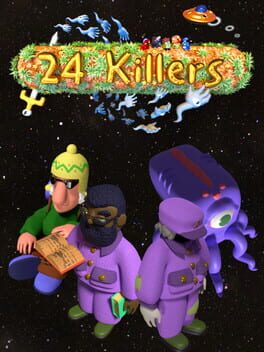I tend to not be into games specifically which bake into their outflowing charisma the aura of lovable idiosyncrasy; I can get behind movies with casts of oddballs and quirks, novels populated with surreality at home, comics askew with half remembered figments of characters, but games which can’t make a pure sentimental or quizzical experience of life as we see it caricatured, but also a mechanical coinciding parallel argument, more often than not ape the artificiality these idiosyncratic works try to point out in our everyday social mores. Because something like The 20th Century (2019) is largely spectacular, able to be interacted with as the farce of a dream that compounds into what he revere as history, it cuts through the rote activities that go into creating that spectacle not in contrast to our normalcies that it thumbs at, but because our social construct allows for intra-commentorial reinforcements of its own multiplicity (which is part of why true critique is so hard to maintain without becoming the obsequient second comer to the argument between status quo and mirrored parody). However, when games pronounce this mummery of displaced normalcy, artificialising the pretence of coordinated nature outcropped in our actions, it also must be coupled with the standardised explorative apparatus to function as that critique: dual sticks to transgress, A to interact, upgrades to signify achievements of the necessary progression. Due to this coupling of the obvious interaction model, because, except for the most radical of the avant-garde, there is also rote interaction along the borders of other art objects but in less conscious ways as holding a controller or managing inventories, the inclusive critique of normalcy (by which I mean anything other than a standardised reproduction of the conditions made up for requiring “normal life”) is more thoroughly adopted into the landscape of structural expression bent toward hegemony than is otherwise seen in things such as Dadaist poetry or free jazz.
That said, 24 Killers doesn’t fall into the Undertale ‘it is what it says it isn’t’ trap of these types of games, if only because it doesn’t set out as being so apart with as grand ambitions. It’s a modest game, if you don’t go for the truly bonkers total completion, that attempts to tell an unusual story of a parodic community, but it speaks less to the idea of community than it might if it were to flesh out more towards a true simulation. In most respects, it isn’t an anti-game or a subversive RPG or an adventure game about adventure games; it’s merely a little parable of why community is so regulated and normalised instead of how community is regulated and normalised: because people are pleasant and nice and it feels good to be pleasant and nice. It may be tedious to help a friend, but you do and then you have a coffee and sharpen their beak with a shell given to you by a gigantic fish that lives in a toxic sewer beside a living pile of shit.
That said, 24 Killers doesn’t fall into the Undertale ‘it is what it says it isn’t’ trap of these types of games, if only because it doesn’t set out as being so apart with as grand ambitions. It’s a modest game, if you don’t go for the truly bonkers total completion, that attempts to tell an unusual story of a parodic community, but it speaks less to the idea of community than it might if it were to flesh out more towards a true simulation. In most respects, it isn’t an anti-game or a subversive RPG or an adventure game about adventure games; it’s merely a little parable of why community is so regulated and normalised instead of how community is regulated and normalised: because people are pleasant and nice and it feels good to be pleasant and nice. It may be tedious to help a friend, but you do and then you have a coffee and sharpen their beak with a shell given to you by a gigantic fish that lives in a toxic sewer beside a living pile of shit.
